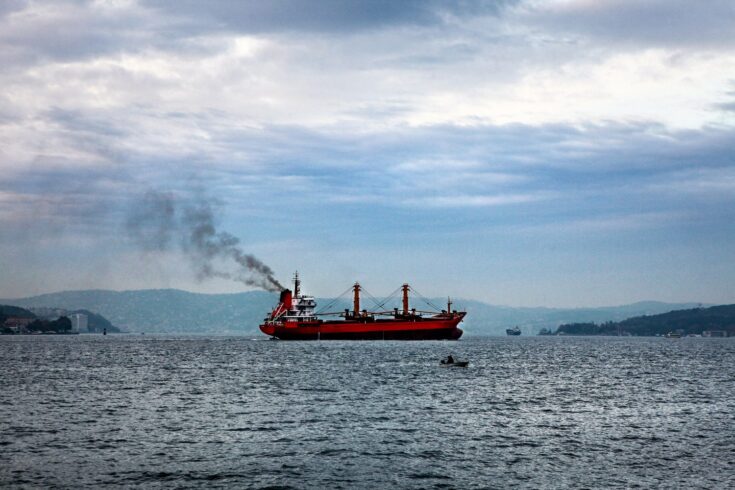Carbon capture technology specialists C-MAT Technologies has brought together a consortium for a new project looking at the opportunity for a new filtration system for carbon dioxide (CO2) emissions in shipping.
In order to meet UK government net zero targets by 2050, technologies must be developed to reduce carbon emitted by hydrocarbon burning vessels, which currently dominate marine transportation. With an average lifespan of 20 to 25 years, new and existing vessels burning hydrocarbons will still be sailing beyond the 2035 initial target and 2050 final carbon target.
As it is not commercially viable to simply scrap fleets of ships and replace them with low and zero carbon alternatives in the near future, carbon-reducing retrofit technology solutions are key to the maritime sector’s environmental evolution.
Metal-organic frameworks for Reduction of Ship Emissions (MORSE)
The MORSE project is led by C-MAT Technologies, in partnership with University College London, the Natural Environment Research Council, British Antarctic Survey and Tope Ocean. It focuses on the use of novel metal-organic frameworks (MOFs) to replace traditional carbon filters in vessel flue gas filtration systems, thereby reducing carbon emissions for ships run on conventional fuels.
This feasibility study has a proven track record in onshore industrial operations around the improved absorption of CO2 molecules, and a flexible nature that allows for more versatile fitting to different vessel engine specifications. The study will consider how to plan, trial and shape the introduction of the MOF concept to the marine sector.
The project scope
The project will take place for 12 months between April 2024 and March 2025. It will involve lab testing of the retrofittable technology using a replicated flue gas system, as well as broader concept analysis work that covers the capture, storage and sequestering of CO2 emissions in use.
As well as being assessed for its impact on traditional fuel systems, the technology will also be evaluated for the future storage of potential green fuels such as ammonia and methanol.
Within the feasibility study, the project partners will be looking at all elements of the overall system-level design, as well as important factors around:
- sizing
- practical installation
- potential storage limitations when it comes to captured CO2 on board
Aims and ambitions
In this pre-deployment stage, the project aims to provide proven results for the efficiency of MOFs in the lab environment, as well as data around any possible differences in real-world applications.
The partners will also look to set out potential use cases and target market ambitions. For example, they will look at where restricted use is possible in hybrid vessels that can switch the system on and off at different times and power requirements.
The partners will work with stakeholders to assess their requirements, limitations and expectations, including how retrofitting this technology can fall in line with ships’ existing service intervals. In doing so, they aim to establish an optimised approach ahead of any potential next-stage deployment work following the project.
Ian Godfrey, Managing Director at Tope Ocean and the Project Manager for the MORSE project, said:
Shipping simply has to decarbonise in the same way that we have seen with other substantial industries, to avoid its global emissions contribution increasing by failing to act. While fully green technology in new vessels may be the holy grail in the longer-term, retrofit has a vital role to play in tackling emissions and inefficiencies in existing vessels and infrastructure.
The funding for the study has been vital in helping us speed up this testing process. It has also been a good method for keeping progress on track and to ensure that the project is achieving its deliverables at every stage. With the great potential of the MOFs materials, it is essential we continue to move forward, and the backing received through this funding has given some real credibility to the concept in the market.
About the funding
This project is part of the Clean Maritime Demonstration Competition round four (CMDC4), funded by the UK Department for Transport (DfT) and delivered by Innovate UK.
CMDC4 is part of DfT’s UK Shipping Office for Reducing Emissions programme, a £206 million initiative focused on developing the technology necessary to decarbonise the UK domestic maritime sector.
The programme will include a multitude of technologies including:
- hydrogen
- electric
- ammonia
This funding will place the UK among the leading nations in the development of new and innovative vessels and port infrastructure, supporting its rich maritime industry and coastal communities.

